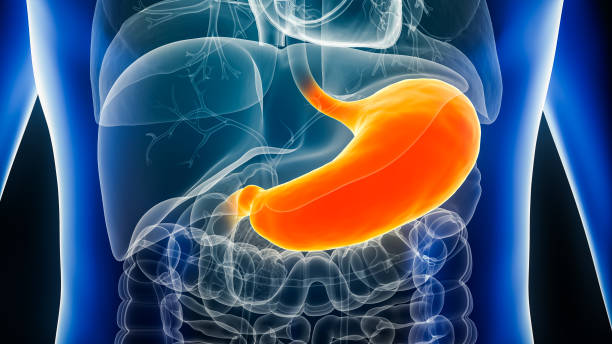A peptic ulcer is an injury or sore in the mucous lining of the stomach and duodenum (upper portion of the small intestine); it can result in bleeding and stomach pain. Peptic ulcers are of two types: gastric ulcers, which develop in the stomach, and duodenal ulcers, which affect the small intestine (duodenum).
When the mucous lining of the stomach and duodenum is eroded, gastric acids and digestive enzymes will slowly eat away the stomach and duodenal walls and eventually lead to sores that are continually irritated and eaten up by acids. If left untreated, it can cause serious complications like internal bleeding.
Causes
Spicy food and stress do not cause ulcers, although they can make the symptoms worse. Here are the two leading causes of peptic ulcers.
- Bacterial infection: If a person is infected with H. pylori, a bacteria that infects the GIT, it can cause inflammation and injury to the lining of the stomach and duodenum, resulting in ulcers.
- Nonsteroidal Anti-inflammatory Drugs (NSAIDs): Frequent use of medications to treat pain, including ibuprofen and aspirin, can cause ulcers because these drugs can make your duodenum and stomach more vulnerable to stomach acid.
Symptoms of Peptic Ulcer
The common symptoms of this condition include:
- Heartburn.
- Nausea.
- Fullness or bloating.
- Vomiting.
- Stomach pain.
Peptic ulcers can also cause internal bleeding, which can be life-threatening. If there is slow bleeding from ulcers, the symptoms may not be detected until they result in anaemia.
Anaemia occurs when there is a shortage of red blood cells to transport oxygen to cells. Its symptoms usually include fatigue, pale skin, and shortness of breath. However, you may notice the following symptoms when an ulcer is bleeding rapidly.
- Lightheadedness.
- Bloody vomit.
- Bloody stool.
- Fainting.
- Black, sticky stool.
If you notice any symptoms indicating rapid bleeding, ensure you contact a healthcare provider immediately.
Treatment
Treatment options for peptic ulcers include:
- Proton pump inhibitors (PPIs) are used to block the production of acid in the stomach to create time for the ulcer to heal.
- Cessation of all Nonsteroidal Anti-inflammatory Drugs (NSAIDs) if overuse had caused the ulcer.
- If helicobacter pylori caused the ulcer, antibiotics can used to get rid of the bacteria infection.
- A doctor may treat bleeding ulcers during an EGD by putting a small clip on the bleeding vessel or burning it to close it up.



